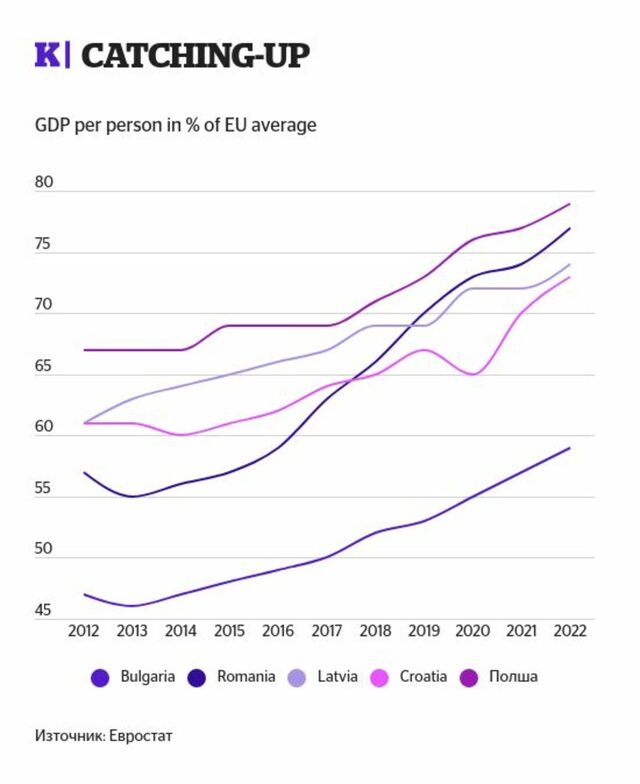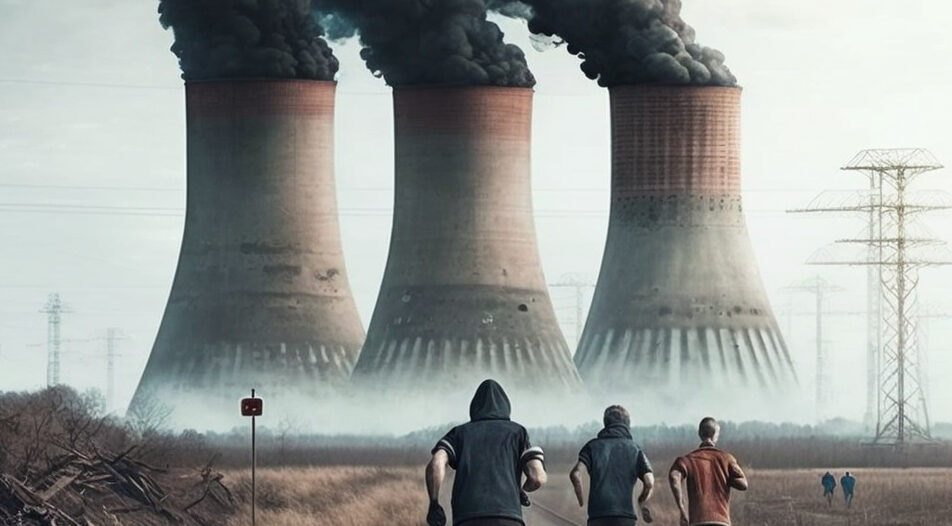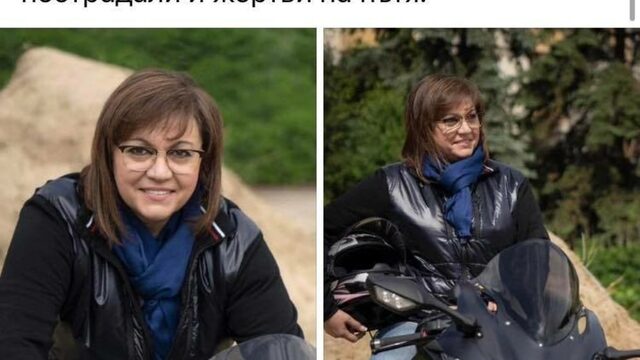59% of the average EU level. That is the last calculation of Eurostat, regarding Bulgaria's GDP per capita. This means we've come a long way since 2012, when we were only 47% of the average.
Yet we're still dead last. I can hear pessimistic voices explaining how we'll need many decades to reach the EU level, angry ones blaming me for not being content enough with the progress we've made, or optimistic ones telling me how everything is just great in Bulgaria.
I will respectfully disagree with all of them.
I was in Romania last week. It's very similar to Bulgaria in many ways. It is, granted, a much bigger country, but it lost a similar percentage of its population to migration, had the same privatization period, suffers from a lack of highways and a bad rail service. People even vacation in the same place (Greece, of course).
What's different is that Romanians try to seize the moment. For example, the huge anti corruption drive back in the 2007-2011 period happened through pure luck: simply two ladies with a zeal for justice - Monica Macovey and Laura Kövesi - had been granted a free hand for a small window of time. They exploited most of it before scared politicians reined them in. Or, take Cluj - the second biggest city. It is a charming and smart place, but most of this is happening because of an active and very creative city government. Plovdiv in Bulgaria, for example, has a lot to offer but is developing in spite of, not because of its mayor.
The result of this is, that a decade later, our neighbor we aligned ourselves with in 2007 is now richer per capita than Greece, Croatia and Portugal and is running neck and neck with Poland at 77% of the EU average.

So it is possible to run faster, if you use all your chances and try to be smart. I'm telling you this, because there is another opportunity looming and we are about to miss it. You already know about the 1.6 billion leva Bulgaria is probably going to forfeit this year if it doesn't say what it plans to do with coal.
Now hold steady.
What's on the line are not only those 1.6 billion, but the almost entire 13 billion for the Recovery and Resilience Plan. Next week, the government will begin negotiations on a revision of the Plan. It will try to convince the EC that we need to drop the 40% cut of CO2 emissions by 2025. Why? Because the Parliament said so. Why? Because they wanted to boost their election campaign in the coal regions.
The most stupid part? Bulgaria is already on the way to cover the requirements. Yes, you read correctly. Because of a drop in demand and higher price coal-produced electricity is already way down. When you consider that several big power-plants are probably going to go offline in the next 1-2 years, the current commitment will be easy to fulfill.
Yet we are banging on the table and risking losing a hell of a lot of money because there seems to be no one able to explain this or make decisions, and politicians are busy screaming nonsense. Or, as Ms. Macovey will no doubt have put it - there seems to be no one with balls enough. Now that's a problem I don't know how to fix, even with so many generals around.
This newsletter is helped by
Politics this week:
Radev's game with Ukraine: it's what they do, not what they say "Bulgaria does not support, and is not part of, the overall order for the supply of shells to Ukraine. This is our sovereign decision." This was President Rumen Radev's response on Tuesday to being asked why Sofia has exempted itself from the EU's joint drive to purchase and send ammunition to Ukraine with 2 billion euro from the European Defense Fund.As our most dedicated readers might remember, this statement comes just days after European industry commissioner Thierry Breton visited three undisclosed Bulgarian ammunition factories to ensure that they can expand their capacity to produce shells and said that it is cooperating well with the Donev cabinet.
So, who should we trust?
It's complicated. Bulgaria will really not back the EU decision, but its factories would still participate in the munition delivery scheme. Here is how: as Defense Minister Dimitar Stoyanov said this week, the Bulgarian army will not send its 155 mm shells (the most urgently needed type of munitions) to Ukraine for a simple reason - it does not have such ammo in its reserve. This is consistent with Mr Radev's position that Bulgaria should not strip its army of scarce resources to support Ukraine's war.Mr Stoyanov made an important clarification, however. "Such projectiles are not produced at the Terem plant, which is under the Ministry of Defence", but added that "the Ministry of Economy is competent for the capabilities of other enterprises of the military-industrial complex."
So in the end
Some of Bulgaria's military complex will produce such ammo and might sell it to the Western armies, which will fill up their stockpiles and send the old shells to the UDF. And Radev gets to keep his about-face and not enrage some voters.
Speaking of which: what about the Bulgarian army?
Bulgaria's military spending in 2022 amounted to 1.54% of its economy and, although it has increased, is still a long way from the 2% of GDP commitment, according to NATO Secretary General Jens Stoltenberg's annual report published on Tuesday. Relative to the size of its economy, Bulgaria ranks 16th out of 30 NATO countries in its spending on defense.Economy:
Competition watchdog suddenly awakens: goes after supermarket chainsThe Commission for Protection of Competition (CPC) has initiated three proceedings to probe possible cartel arrangements between food retail chains, the regulator announced on Thursday. CPC announces that it will inspect the companies that operate the stores of the chains Bila, Kaufland, Fantastico, Metro, Promarket and T-market, as well as the organizations Associations for Modern Trade, Union of Poultry Farmers, Association of Industrial Production, Association of Milk Processors in Bulgaria and National Association of Milk Processors.
Given that CPC has never ever started anything which hasn't been motivated by public anger or political games, it's hard to take them seriously. Yet since it's pre-election time, they will probably be more successful in finding a cartel here than in the fuels sector which was their last target.
5g networks frequencies given out illegally
This is what the Supreme Court decided, because of irregularities in the procedure. This decision however, comes two years after the tenders. The three main telecoms are operating the networks already and it will be very hard to take away the network license, because of the large investments they made. So the most likely outcome will be, that smaller players will be able to lobby them for sharing the frequencies and thus start virtual operators.
Figures:
4.3%
Is the unemployment rate in 2022 which is close to the record low of 2019.
211 mln levs
Is the additional amount of VAT tax collected by the state by 17 March, compared to the same period of 2022.
57%
Of the 872 million cubic meters of water supplied by the public water supply has been lost in transit in 2021, according to the latest available data from the National Statistical Institute.Business:
Startup Eleven VenturesThe Bulgarian venture fund announced the participants in its Eleven Alpha unicorn programme, which will receive 300,000 euros of capital for a 10% stake and a customized growth plan. These are Bulgarian Flataway and True Insights, Greek MyTeam and Slovenian Perfeqt.
Insurance
Euroins RomaniaThe key company in the insurance subholding of Eurohold Bulgaria entered bankruptcy proceedings last Friday, following a decision by the Romanian non-bank financial regulator (ASF) to revoke its license.
Manufacturing
Kastamonu Environment and Water Minister Rositsa Karamfilova has halted Kastamonu Bulgaria's project to expand its resin plant, which is used in the production of particle board, despite an approved environmental impact report. Read more about this next week on KInsights.The ex-head of the legal department of Ruzha Ignatova's faltered crypto company OneCoin was extradited from Bulgaria on March 20, according to a press release by the New York Prosecution. She faces charges of conspiracy to defraud and money laundering, for each of which she could receive a maximum sentence of 20 years in prison if found guilty.
Todor Popov
The long-serving mayor of Pazardzhik, who claimed to Capital that he will run the city until at least 2031, despite a long record of scandals: an expensive estate, a secretary killed by a hitman, and his license being taken away by the police.
Place
RussiaThis week, the Russian embassy posted on Facebook an invitation to IT's and their families to come to Russia. The laws have been amended to make that easy, said the post. While many users laughed at the proposal and shared jokes, this proves that the Russian labor market might be already feeling the brunt of the war.
Date
4 MayThe deadline set by the Transport Ministry for the submission of offers for operating lease of two helicopters with all medical equipment and trained and licensed pilots for the Bulgarian HEMS service. They will operate for 2-3 years until Leonardo delivers the 6 helicopters, purchased earlier this year.
Company
Bulgarian PostWord of the week:
Pollock Bulgaria could just be in possession of an original painting by mid-century American artist Jackson Pollock worth tens of millions of dollars. The painting, discovered during an operation by the State Police in Sofia on Wednesday, is dedicated to Hollywood actress Lauren Bacall, said the spokeswoman for the Sofia City Prosecutor's Office, Desislava Petrova. The canvas was found as part of an international operation led by Europol in Bulgaria, mainland Greece and Crete. It has not yet been established with certainty that the painting is Pollock's, but there is plenty of evidence pointing that way, prosecutors said.I have to say it's quite funny to watch the Police and the Prosecution service debate about the merits of a mid-20th century American painter for a change.
59% of the average EU level. That is the last calculation of Eurostat, regarding Bulgaria's GDP per capita. This means we've come a long way since 2012, when we were only 47% of the average.
Yet we're still dead last. I can hear pessimistic voices explaining how we'll need many decades to reach the EU level, angry ones blaming me for not being content enough with the progress we've made, or optimistic ones telling me how everything is just great in Bulgaria.













